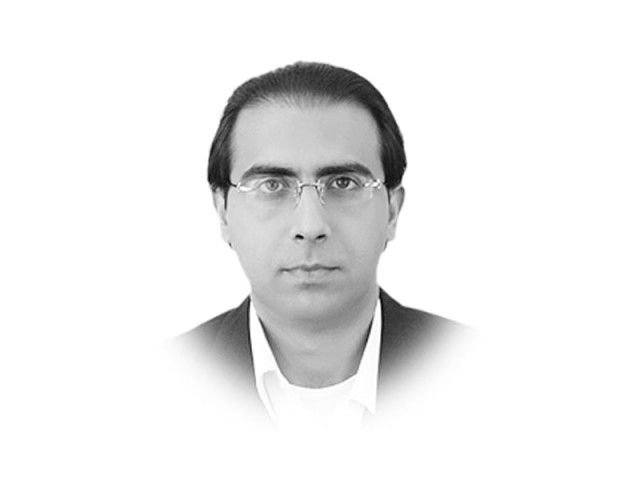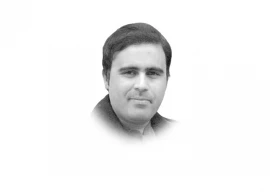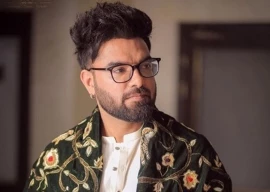
They are right. The panel is one-sided, essentially giving the view of the people who have an agreement on some (certainly, not all) fundamental matters regarding the relationship of the Pakistan state with Balochistan. However, the key question is: does a University have a commitment to ‘objectivity’ or ‘impartiality’ in arranging public debates? Should the counterview always be present, and presented in the same time and space? Particularly, when it is a panel discussion which is not mandatory and any student can choose to attend or not or of course attend and challenge the speakers. For the sake of clarity, the primary counterview is that of the State and the security forces; it can also include views of public intellectuals who view the Balochistan conflict differently (or perhaps think that the reports of trouble in Balochistan are greatly exaggerated).
One related question is: are Universities supposed to be ‘nationalist’ and ‘patriotic’? Is that even possible? If that is the aim, whose brand of ‘patriotism’ will a university espouse? Should Universities have a singular commitment to ‘National Interest’? This reminds one of many Pakistani journalists who openly proclaim that their first commitment is to the ‘National Interest’; utterly bizarre is it not? It surely has to be ‘facts’ for a journalist and encouraging a spirit of inquiry for a University, and perhaps the law of unintended consequences will ensure that there is a cumulative contribution to a national interest in the long run.
LUMS can legitimately argue that all it was doing in the first place was providing a counterview. The view of the State is inescapable, from television screens to school curriculum, and by the time they get to University most students can narrate the official point of view almost on auto-pilot. A panel on Balochistan consisting of ‘anti-state’ elements will at least result in some of them reflecting on how they know, what they know and if that happens, a University has done its job regardless of the substance of the student’s belief. The State also has to reflect: does it need supporters who have reasoned themselves into converging/aligning positions as opposed to “BLEEDING GREEN, DEATH TO TRAITORS” crowd, since quite frankly, they are a bit of an embarrassment as a cadre. There is a neat bit of irony here, the all-powerful patriots scared of the most privileged student body of the country, and a majority of them owing to their privilege having grown up on (un)healthy dose of the State viewpoint anyway.
There is more fundamental assumption at play; essentially Universities should be ‘non-political’. There are two levels of this assumption, often intertwined; firstly, the student body should not engage in politics, essentially kids should study and leave politics to the grown-ups. The silliness of this ahistorical assumption hardly mandates a detailed rebuttal. The National Student Federation (NSF) has in many ways shaped decades of politics in the country. The Jamiat (IJT), the Muslim Student Federation and the Peoples Student Federation have given us the most vocal voices in parliament. The disdain for student politics is an extension of contempt for politics and its incompatibility with ‘National Interest’.
The second level is more complex; a University should not take a political stance as an Institution? This is a question that LUMS is not unfamiliar with, particularly during the Musharraf emergency of 2007. Did the wholesale sacking of the judiciary and abrogation of the Constitution mandate the Institution to take a position or at least provide an enabling environment for the faculty and students to do so? National questions are not as cut and dry as military dictators gone berserk, and in this event, the University was curating a conversation and not institutionally being part of it.
It is easy to blame the victim here, LUMS, while in fact it deserves the credit of venturing into allowing for a debate, conspicuous by absence in the public conversation. Should it have resisted the government more? Perhaps, however, as it turns out, in that event allies would have been few. Since the main point has been lost (perhaps quite deliberately); it is a question of form (procedure, if you will) rather than substance. What the panelists have to say is less important in the larger scheme of things than their right to say it. This is not a ‘Western’ absolute free speech argument (which is infinitely tragic, and one looks forward to a time, where that will be the argument), it is about attempting to silence a debate which is impossible to silence. Everyone with access to a computer and an internet connection (all of LUMS student population) can access the panelists’ views, it might take a bit of digging, yet it can and will be found. Makes the entire exercise absurd and futile, does it not? Perhaps, it was better for the State to persuade the University administration to allow them to hold a panel discussion of its own, or better still a debate between the viewpoints, and let the audience be the judge (and the hand is heavily tilted in the favour of the State to begin with).
Balochistan is a theatre of multiple conflicts, and romanticising any one side is polemical and often reductionist. One can oppose the enforced disappearances, extra-judicial killings and the historic and ongoing deprivation in Balochistan, and in no way feel constrained to change the topic or fail to unequivocally condemn the killings of non-Baloch labourers by the supposed nationalists. Cancelling the talk was aimed at impeding this nuance. The State has to reconsider strategy, stifling information is no longer possible, young people will find what the State censors.
The idea of conversation has relevance here in more contexts than one, it is about the right of the students to engage in a conversation about Balochistan; equally significantly, it is perhaps time for the state to consider that abandoning the idea of a dialogue with Balochistan has led us to a point where an academic debate on the issue cannot be conducted without extraordinary fear and paranoia. Balochistan and its many layers of conflicts will not be settled with panel discussions alone, yet banning viewpoints enables binaries, something which none of us can afford with regard to Balochistan.
Published in The Express Tribune, April 12th, 2015.
Like Opinion & Editorial on Facebook, follow @ETOpEd on Twitter to receive all updates on all our daily pieces.














COMMENTS
Comments are moderated and generally will be posted if they are on-topic and not abusive.
For more information, please see our Comments FAQ